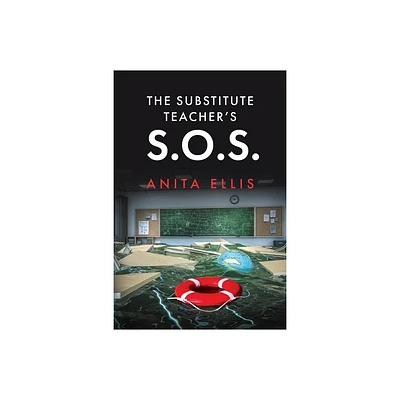Home
S.O.S.
Loading Inventory...
Barnes and Noble
S.O.S.
Current price: $23.99


Barnes and Noble
S.O.S.
Current price: $23.99
Loading Inventory...
Size: OS
*Product Information may vary - to confirm product availability, pricing, and additional information please contact Barnes and Noble
S.O.S.
, the eagerly awaited fourth album of
Diam's
, finds her recoiling from the remarkable success she'd experienced with her previous album,
Dans Ma Bulle
(2006). That album couldn't have been more successful. The best-selling French album of the year, it not only spawned the smash hits
"La Boulette"
and
"Jeune Demoiselle,"
it also raked in all kinds of awards, including Best French Act at the
MTV
Europe Music Awards and Francophone Album of the Year, Francophone Female Artist of the Year, and Francophone Song of the Year at the NRJ Music Awards. Following the success of
, which spent an astounding 91 weeks in total on the French albums chart, including 32 weeks in the Top Five,
took some time off. Battling both depression and writer's block, she traveled to Africa and did humanitarian work. She also got married. The marriage became tabloid banter when news broke that her Muslim husband was already married and that she took to wearing a hijab. At the time, tensions were running high in France for Muslims, who were at the center of a "national identity" debate being orchestrated by the country's center-right government. Meanwhile,
and her label,
EMI
, were very guarded in the run-up to the release of
, limiting media access to the rapper and issuing a carefully worded statement along the lines that she turned toward religion after medicine failed to heal her soul. The album's lead single,
"Enfants du Desert,"
is something of a mission statement, explaining her change of direction and what took her so long between albums: "Sortie de ma bulle (Out of my bubble)/J'ai pris le temps de regarder l'Afrique et de contempler la lune (I took the time to see Africa and contemplate the moon)/Cette societe n'est qu'une enclume (This society is an anvil)/J'ai couru apres le fric...dans cette course au succes (I ran after the cash...in this race for success)/J'crois que j'ai connu l'enfer (I believe that I've known hell)/Ma soeur, mon frere, j'prefere qu'ca parte aux enfants du desert (My sister, my brother, I prefer that it goes to the children of the desert)/Car je n'emporterai rien sous terre (Because I'm taking nothing underground)." With a refrain like this, not to mention the song's sullen beat and righteous lyrical tone,
"Enfants du Desert"
is a far cry from past hits like
"DJ,"
the party-oriented Top Five breakout hit from
' second album,
Brut de Femme
(2003). Among her past hits,
"Ma France a Moi"
-- a forceful critique of mainstream French culture -- has the most in common with
and the remainder of
, which is likewise polemic and solemn. With a couple songs clocking in around ten minutes (most notably the album-opening
"I Am Somebody"
) and precious few hooks or melodies,
is a difficult album and rather depressing. Its title is fitting, as this music is a cry for help, a plea from
for widespread societal change. Of course, when you keep in mind her post-
breakdown and embrace of Islam, it all adds up. Sympathetic fans who can relate to the world-view of
will find consolation in
, an album that recoils not only from fame but from capitalistic culture altogether. On the other hand, those who were drawn to feel-good smash hits like
"Jeune Demoiselle"
rather than
herself are likely to find themselves alienated by
, a non-commercial makeover effort that offers no fun whatsoever. ~ Jason Birchmeier
, the eagerly awaited fourth album of
Diam's
, finds her recoiling from the remarkable success she'd experienced with her previous album,
Dans Ma Bulle
(2006). That album couldn't have been more successful. The best-selling French album of the year, it not only spawned the smash hits
"La Boulette"
and
"Jeune Demoiselle,"
it also raked in all kinds of awards, including Best French Act at the
MTV
Europe Music Awards and Francophone Album of the Year, Francophone Female Artist of the Year, and Francophone Song of the Year at the NRJ Music Awards. Following the success of
, which spent an astounding 91 weeks in total on the French albums chart, including 32 weeks in the Top Five,
took some time off. Battling both depression and writer's block, she traveled to Africa and did humanitarian work. She also got married. The marriage became tabloid banter when news broke that her Muslim husband was already married and that she took to wearing a hijab. At the time, tensions were running high in France for Muslims, who were at the center of a "national identity" debate being orchestrated by the country's center-right government. Meanwhile,
and her label,
EMI
, were very guarded in the run-up to the release of
, limiting media access to the rapper and issuing a carefully worded statement along the lines that she turned toward religion after medicine failed to heal her soul. The album's lead single,
"Enfants du Desert,"
is something of a mission statement, explaining her change of direction and what took her so long between albums: "Sortie de ma bulle (Out of my bubble)/J'ai pris le temps de regarder l'Afrique et de contempler la lune (I took the time to see Africa and contemplate the moon)/Cette societe n'est qu'une enclume (This society is an anvil)/J'ai couru apres le fric...dans cette course au succes (I ran after the cash...in this race for success)/J'crois que j'ai connu l'enfer (I believe that I've known hell)/Ma soeur, mon frere, j'prefere qu'ca parte aux enfants du desert (My sister, my brother, I prefer that it goes to the children of the desert)/Car je n'emporterai rien sous terre (Because I'm taking nothing underground)." With a refrain like this, not to mention the song's sullen beat and righteous lyrical tone,
"Enfants du Desert"
is a far cry from past hits like
"DJ,"
the party-oriented Top Five breakout hit from
' second album,
Brut de Femme
(2003). Among her past hits,
"Ma France a Moi"
-- a forceful critique of mainstream French culture -- has the most in common with
and the remainder of
, which is likewise polemic and solemn. With a couple songs clocking in around ten minutes (most notably the album-opening
"I Am Somebody"
) and precious few hooks or melodies,
is a difficult album and rather depressing. Its title is fitting, as this music is a cry for help, a plea from
for widespread societal change. Of course, when you keep in mind her post-
breakdown and embrace of Islam, it all adds up. Sympathetic fans who can relate to the world-view of
will find consolation in
, an album that recoils not only from fame but from capitalistic culture altogether. On the other hand, those who were drawn to feel-good smash hits like
"Jeune Demoiselle"
rather than
herself are likely to find themselves alienated by
, a non-commercial makeover effort that offers no fun whatsoever. ~ Jason Birchmeier


















